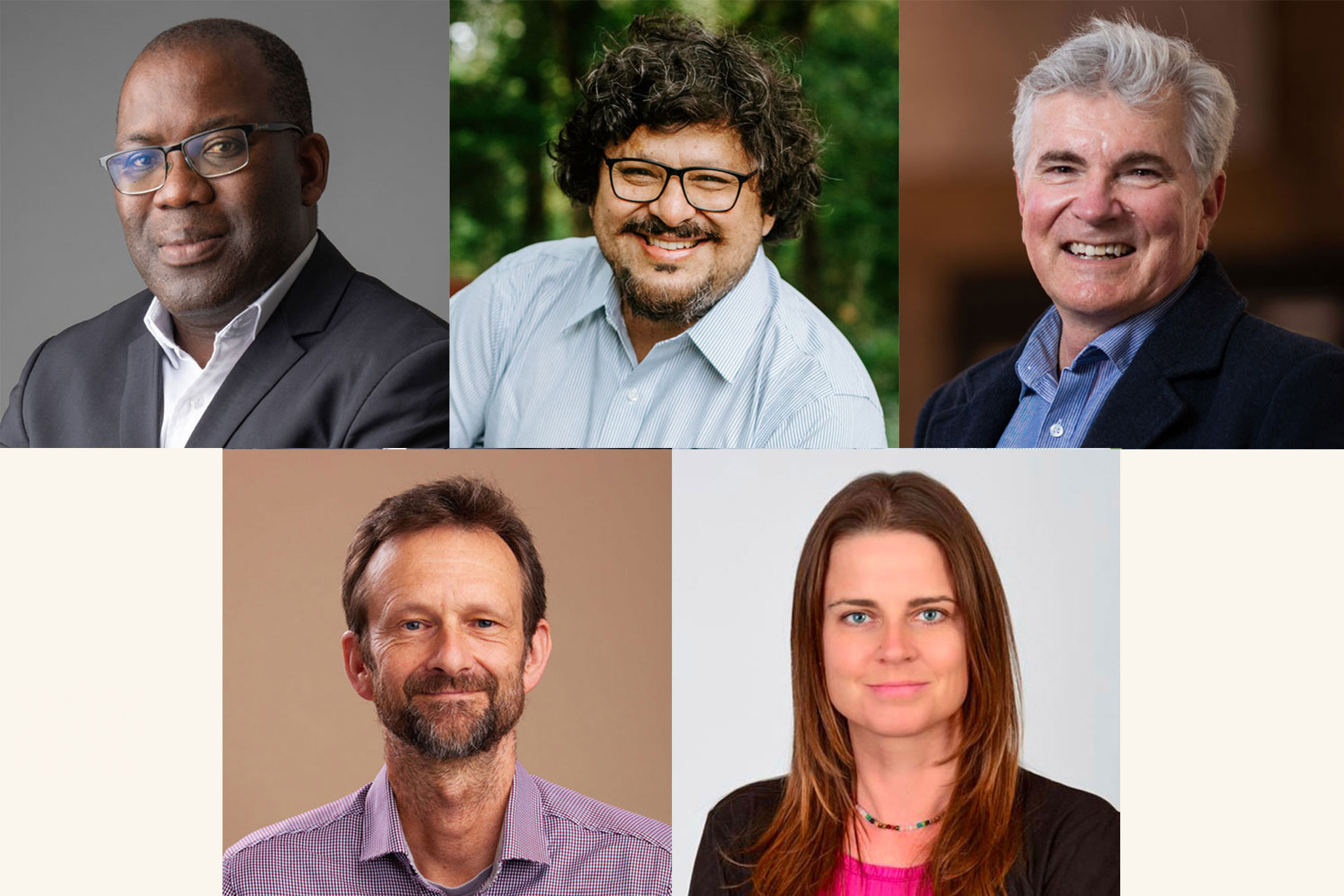
ABOUT US
We are a group of scientists and academics who work together on a voluntary basis to bring the latest peer-reviewed science to the media and policy debate about livestock methane and climate change.
We are specialists in climate science and policies, agriculture and food security, greenhouse gas emission inventories, and mitigation options for food systems.
WHAT WE DO
We use our collective knowledge and experience to provide an independent evidence-based view on the role of livestock in fuelling climate change, the potential and limitations of existing and prospective solutions, and the extent to which these solutions are aligned with climate, biodiversity and sustainable development goals.
We volunteer our time to provide briefings and analysis, and to speak on panels and at events.
OUR PANEL

Ngonidzashe Chirinda
Professor of Sustainable Tropical Agriculture, Mohammed VI Polytechnic University
Ngoni Chirinda’s work focuses on how innovation in agriculture can solve climate and food security problems. His research informs national and international climate mitigation processes. He was one of the lead authors of the 2019 Refinement of the Intergovernmental Panel on Climate Change (IPCC) Guidelines for National Greenhouse Gas Inventories and the Integrated Assessment of Air Pollution and Climate Change for Sustainable Development in Africa. Ngoni is a climate change mitigation panel member on the Scientific and Technical Advisory Panel of the Global Environment Facility. He is co-lead of the Global Research Alliance’s Network to Support Inventories and Nationally Determined Contributions and a member of the Agriculture Technical Working Group of the Climate Bond Initiatives. He is also a member of the UK Research and Innovation International Development Peer Review College and a member of the editorial board of Nature Scientific Report and Frontiers in Sustainable Food Systems.

Mario Herrero
Professor of Sustainable Food Systems and Global Change, Cornell University
Mario is a professor in the Cornell CALS Department of Global Development, Director of Food Systems & Global Change, a Cornell Atkinson Scholar, and a Nancy and Peter Meinig Family Investigator in the Life Sciences. He is a Coordinating Lead Author of the forthcoming IPBES-Nexus Report and a Commissioner and Executive Committee member of the EAT-Lancet 2.0 study. Mario’s work focuses on increasing the sustainability of food systems for the benefit of humans and ecosystems including climate mitigation and adaptation, livestock systems, the true cost of food, sustainability metrics, and healthy and sustainable diets. He has played senior roles in many global initiatives on food and the environment including the IPCC, UN Food Systems Summit, and the Agricultural Model Intercomparison and Improvement Project. Mario is a highly-cited researcher according to the Web of Science, and is in the top 10 of Reuters list of most influential climate change scientists.

Mark Howden
Director of the Institute for Climate, Energy and Disaster Solutions, Australian National University
Mark has 30 years of experience of working on climate change adaptation, mitigation, managing climate variability and science policy. His expertise includes agriculture and food security, the natural resource base, and ecosystems and biodiversity. Mark is an Honorary Professor at Melbourne University, a Vice Chair of the Intergovernmental Panel on Climate Change, and Chair of the ACT Climate Change Council which advises the Australian government. He was on the US Federal Advisory Committee for the 3rd National Climate Assessment, was a member of the Australian National Climate Science Advisory Committee and has contributed to several major national and international science and policy advisory bodies. He helped develop both the national and international greenhouse gas inventories that are a fundamental part of the Paris Agreement and was a major contributor to the IPCC since 1991, with roles in the Second, Third, Fourth, Fifth and Sixth Assessment Reports. He has over 420 publications.

Andy Reisinger
Commissioner, New Zealand Climate Change Commission and Honorary Associate Professor, Australian National University.
Andy is a member of the Bureau of the Intergovernmental Panel on Climate Change (IPCC) and Vice-Chair of Working Group III (Mitigation), and played a key role in the successful approval of the IPCC’s 6th Assessment Report on mitigation. He was also coordinating lead author of two major IPCC climate change reports released in 2014. Andy serves as a Commissioner for He Pou a Rangi, the New Zealand Climate Change Commission, which provides evidence-based advice to guide climate change action for Aotearoa. Prior to this role, Andy was Principal Scientist for climate change at the Ministry for the Environment, and Deputy Director (International) of the New Zealand Agricultural Greenhouse Gas Research Centre. Andy’s personal research interests focus on the role of agriculture in domestic and international climate change policy, greenhouse emission metrics, adaptation strategies, and managing uncertainty in decision-making for mitigation and adaptation.

Claudia Arndt
Senior Scientist and Team leader of the International Livestock Research Institute’s Mazingira Centre in Kenya
Claudia is a Senior Scientist and Team Leader at the Mazingira Centre, at the International Livestock Research Institute – East Africa’s premier measurement hub for greenhouse gas emissions and nutrient flows. She formally served as an Associate Scientist at the National Agrarian University La Molina in Peru and conducted research at the Tropical Agricultural Research and Higher Education Center in Costa Rica. Earlier in her career, she also contributed her skills and knowledge to the Environmental Defense Fund, a prominent nonprofit environmental advocacy group in the US. Claudia’s academic background includes a PhD in Dairy Science from the University of Wisconsin in the US. Her research focuses on the mitigation of methane enteric emissions from livestock, improvement of national greenhouse gas inventories, and the optimisation of nutrient utilisation efficiency with the aim of reducing the environmental impact of livestock systems and promoting the sustainable use of natural resources.
